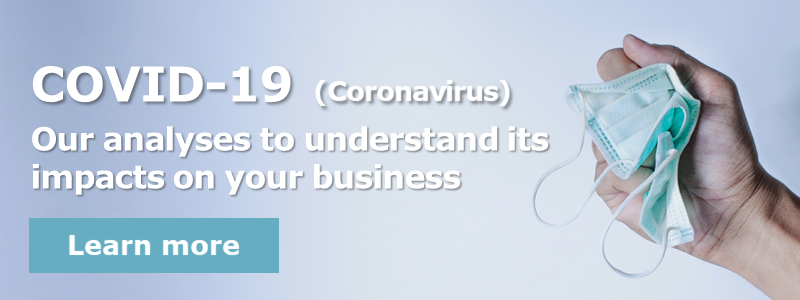The French Labour Administration has implemented a massive control plan to check if employers benefiting from state-aids with respect to short-time work comply with applicable rules.
Indeed, the use of short-time work is subject to strict conditions which are – in principle – checked by the Labour Administration when the employer applies to benefit from this scheme.
However, in the context of Covid-19, applicable rules relating to short-time work have been modified to loosen prior control and accelerate the Administration’s validation.
The Labour Administration now proceeds to a posteriori controls. The Government announced that 50.000 controls will be made during summer.
The control plan is articulated around two main principles:
- Regularize mistakes relating to the calculation of the short-time work allowance.
- Detect fraud committed by employers to benefit from short-time work allowances while they were not eligible to the scheme.
The below provides for an overview of applicable rules to these controls (1) and the sanctions incurred by companies in case of non-compliance with short-time work regulations (2).
1. Control rules
Control agents. In the present context, controls are performed by agents of the Labour Administration with the help of Labour Inspectors who have extended means of control.
Targeted companies. In principle, all companies having benefited from the short-time work scheme might be controlled.
However, the Administration announced that companies having asked for a high number of non-working hours to be compensated will be subject to particular attention.
Furthermore, in case of fraud suspicion, employees and staff representatives are encouraged to report the company’s situation to the Administration for control.
Targeted employees. In case of control, the agent will verify terms and conditions of the use of short-time work for each employee.
This being said, in practice, the first controls show that most reassessments related to particular categories of employees: employees benefiting from a computation of working time in terms of days or hours over the year or employees with specific leaves during the lockdown period, such as vulnerable employees and employees with young children.
Documents to be provided. Different types of documents might be requested by controlling authorities to ensure compliance of the company with short-time work. Generally, requested documents will help the controlling agent to determine if the company fulfilled all conditions to implement short-time work, if employees were eligible to this scheme and did not work during short-time work periods.
Therefore, controlling agents might ask for the company’s staff register, documents used to compute working hours (e.g. work schedules, company-level agreements…), payslips providing the number of compensated hours per employee, works council minutes…
Controlling agents might also request an access to employees’ computers to make sure they did not work during the periods declared as non-worked, in particular for employees working from home.
Outcome of the control. The control has 3 outcomes:
- Either the company made mistakes but acted in good faith. In that case, the company might benefit from an amicable regularization. The Administration is invited to consider the economic situation of the company to find a proper solution.
- Or the company committed proven fraud and the sanctions defined hereafter might apply.
- Or the control agent suspects the company committed a complex fraud which implies the use of thorough investigations. In that case, the agent reports the company’s situation to the Labour Inspector who has extended means of control.
2. Sanctions incurred
Non-compliance with short-time work rules may lead to 3 types of sanctions.
Administrative penalties. The Labour Administration might withdraw the decision authorizing short-time work in the company.
As a consequence, the employer might be forced to reimburse the undue subsidies received during the last twelve months and also lose the benefit from public aids for five years.
Criminal penalties. 3 types of offences might be characterized:
- Fraud (Article L. 313-1 of the Criminal Code): punishable by 5 years of imprisonment and a fine of EUR. 375.000.
- Misrepresentation (Articles L. 5124-1 and L. 8211-1 of the Labour Code): punishable by 2 years of imprisonment and a fine of EUR. 30.000.
- Illegal work (Articles L. 8221-1 et seq. of the Labour Code): punishable by 3 years of imprisonment and a fine of EUR. 45.000 for natural persons and EUR. 375.000 for legal entities.
Civil penalties. Finally, employees might ask for the salary due for the short-time work period and, as the case may be, damages.
In this context, it is therefore key for employers to cooperate with control agents and to provide all necessary pieces of evidence to demonstrate compliance with all applicable rules.
Report: impacts of Covid-19 (Coronavirus)
Our law firm offers you its legal assistance to address all the impacts of Covid-19 (Coronavirus) on your business. Read our dedicated report below.
For more information on our law firm:
Our law firm is a leading international business law firm. Its deep roots, unique positioning and highly recognised expertise enables it to deliver innovative, high value-added solutions in all areas of the law.











.jpg?v=1)


Social Media cookies collect information about you sharing information from our website via social media tools, or analytics to understand your browsing between social media tools or our Social Media campaigns and our own websites. We do this to optimise the mix of channels to provide you with our content. Details concerning the tools in use are in our privacy policy.